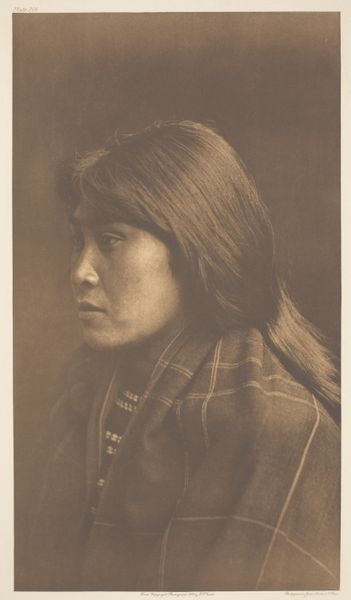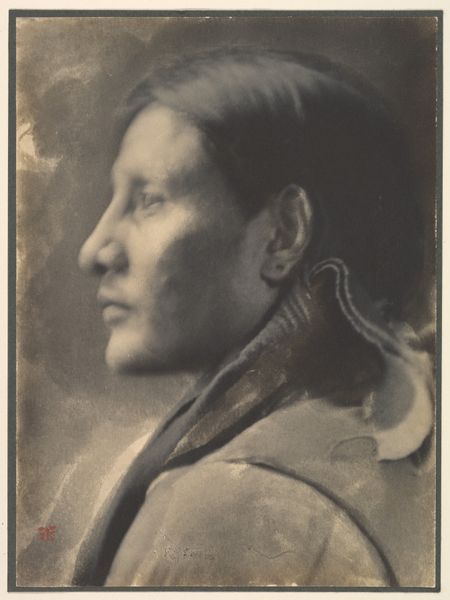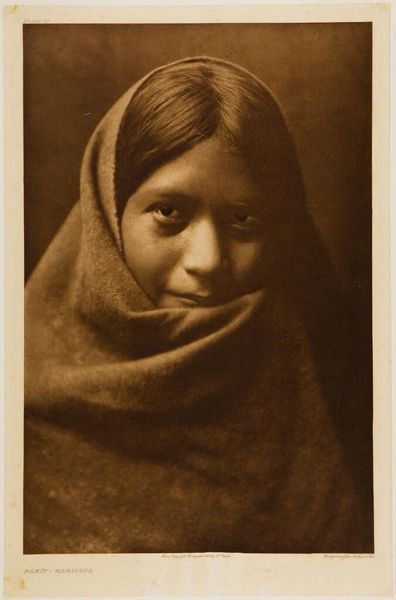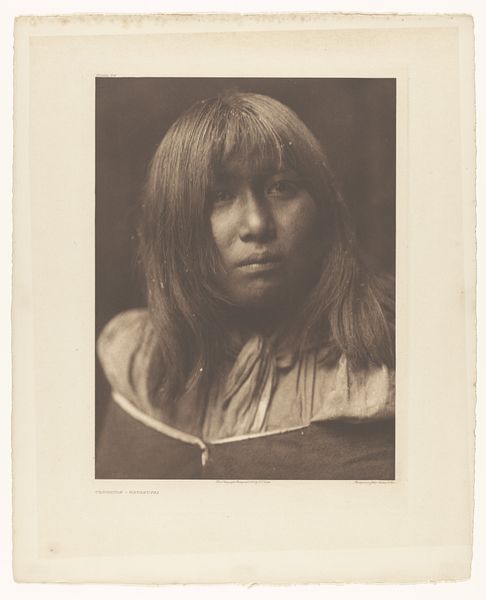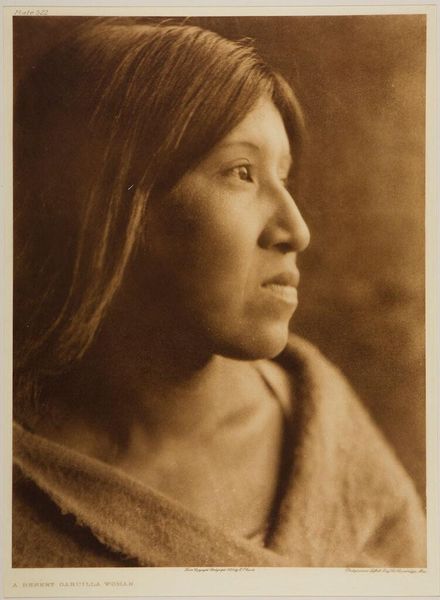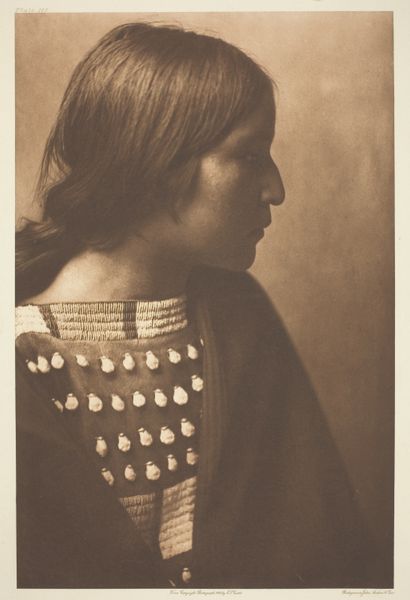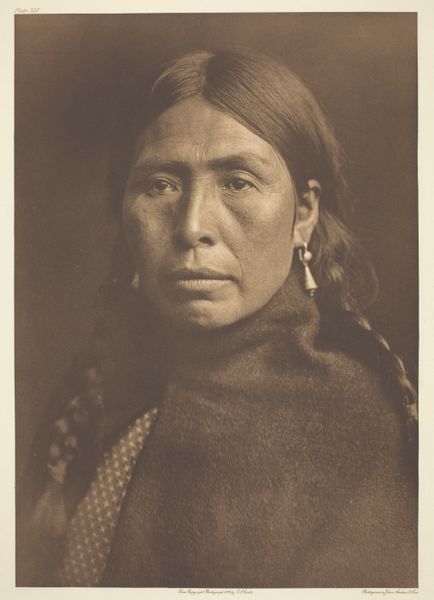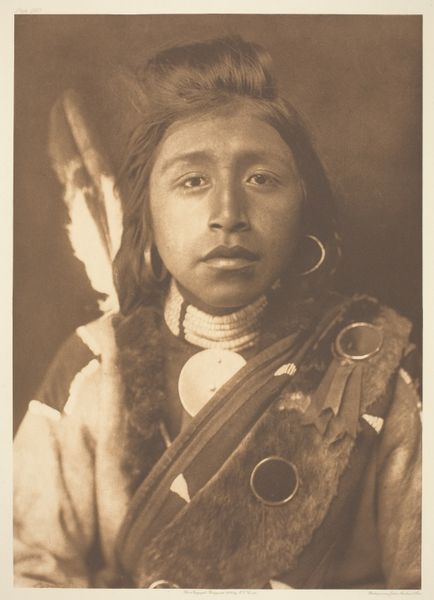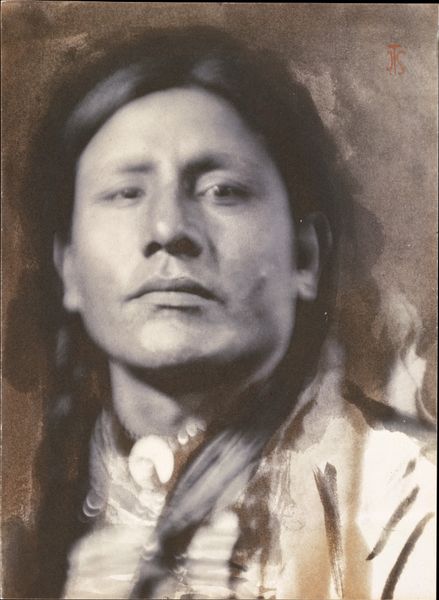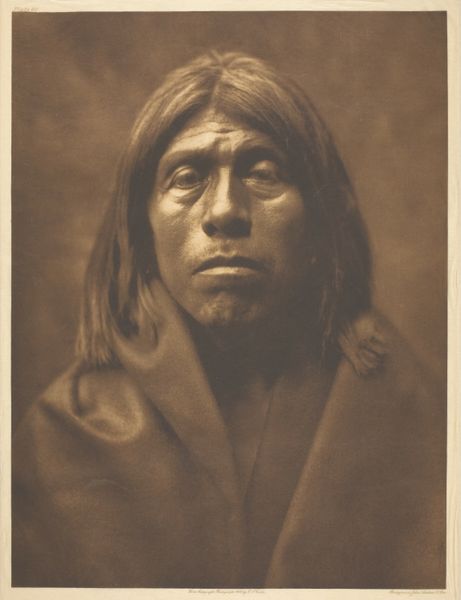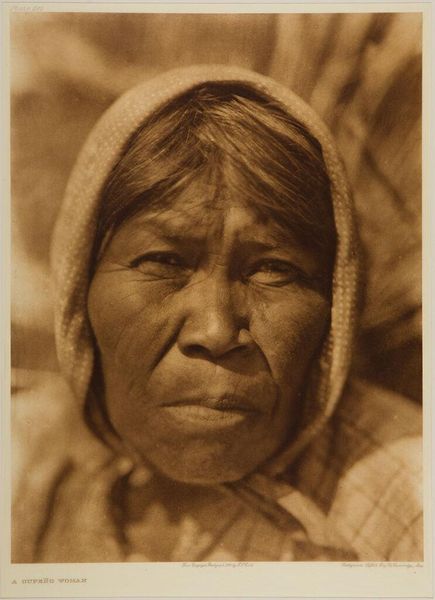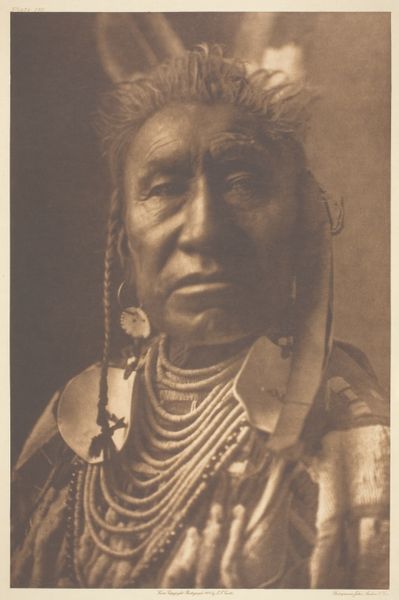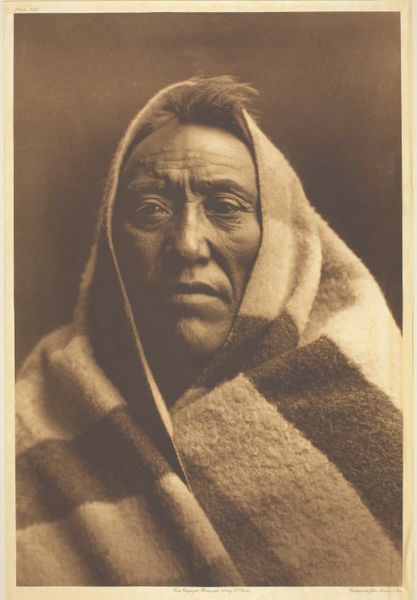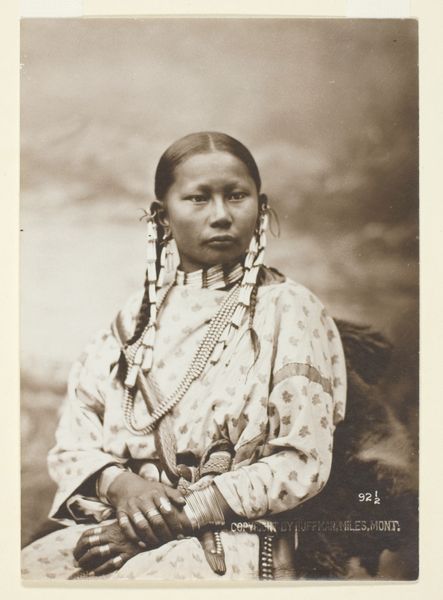
photography, gelatin-silver-print
#
portrait
#
pictorialism
#
photography
#
gelatin-silver-print
#
portrait photography
Dimensions: 39.2 × 22.2 cm (image/paper); 55.8 × 45.8 cm (mount)
Copyright: Public Domain
This photogravure, ‘Suquamish Woman,’ was created by Edward S. Curtis, a photographer known for his portraits of Native Americans in the late 19th and early 20th centuries. Curtis sought to document what he perceived as a vanishing race, influenced by the widespread belief at the time that Native American cultures were fading. He aimed to capture what he considered “authentic” representations of Native life, yet his work is fraught with issues of representation and cultural appropriation. Notice the woman’s gaze. There’s a complexity in her expression, an interplay between vulnerability and strength. Curtis’s photographs reflect a specific historical moment marked by colonialism, dispossession, and cultural erasure. The image invites us to consider questions around identity, representation, and the power dynamics inherent in the act of photographing another person. While Curtis aimed to document and preserve, his work also perpetuated stereotypes. As we look, let’s consider how photography can both reveal and conceal truths. Think about the woman's identity, her experiences, and the legacy of these images.
Comments
No comments
Be the first to comment and join the conversation on the ultimate creative platform.
